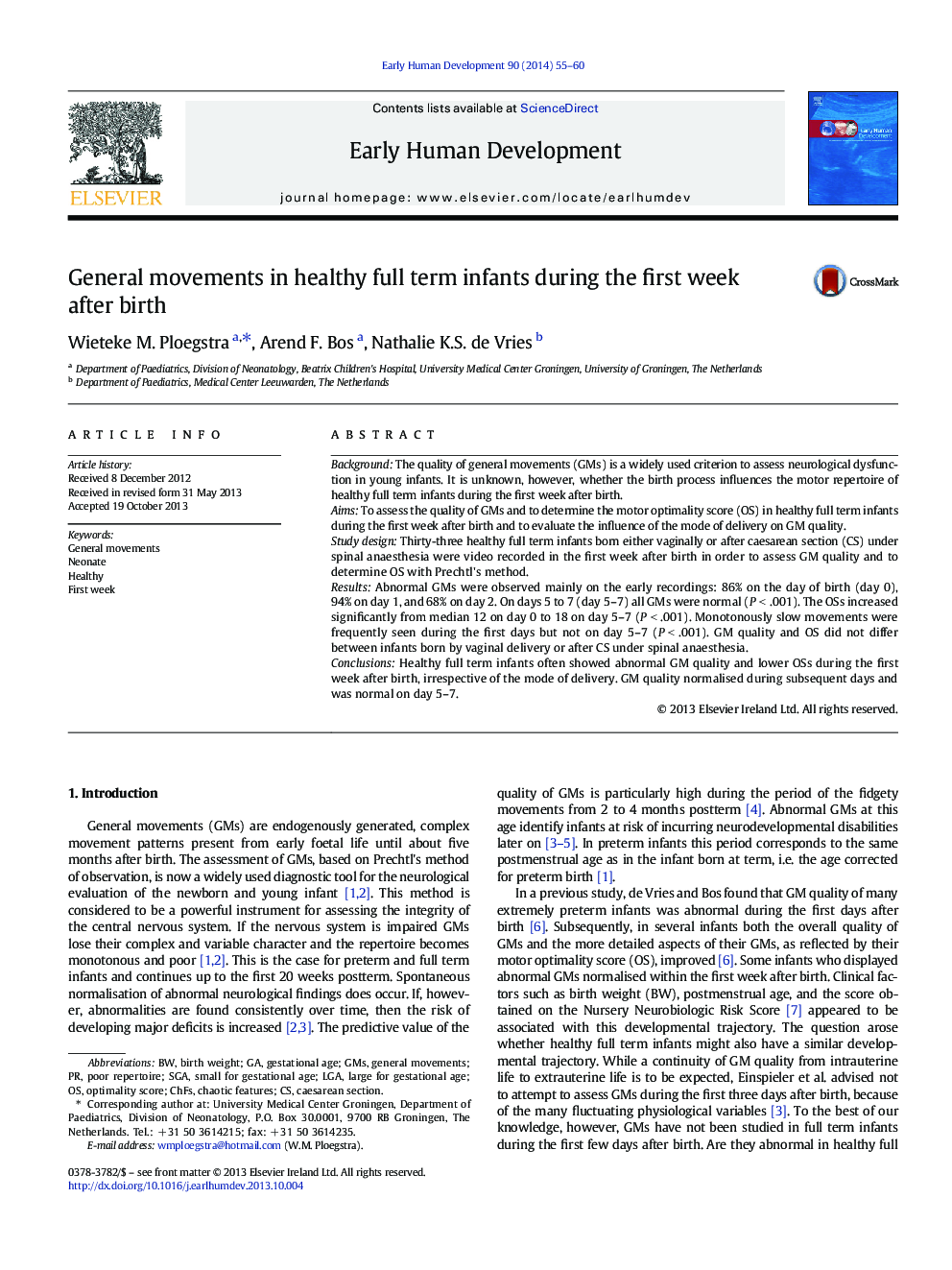| Article ID | Journal | Published Year | Pages | File Type |
|---|---|---|---|---|
| 3918081 | Early Human Development | 2014 | 6 Pages |
BackgroundThe quality of general movements (GMs) is a widely used criterion to assess neurological dysfunction in young infants. It is unknown, however, whether the birth process influences the motor repertoire of healthy full term infants during the first week after birth.AimsTo assess the quality of GMs and to determine the motor optimality score (OS) in healthy full term infants during the first week after birth and to evaluate the influence of the mode of delivery on GM quality.Study designThirty-three healthy full term infants born either vaginally or after caesarean section (CS) under spinal anaesthesia were video recorded in the first week after birth in order to assess GM quality and to determine OS with Prechtl's method.ResultsAbnormal GMs were observed mainly on the early recordings: 86% on the day of birth (day 0), 94% on day 1, and 68% on day 2. On days 5 to 7 (day 5–7) all GMs were normal (P < .001). The OSs increased significantly from median 12 on day 0 to 18 on day 5–7 (P < .001). Monotonously slow movements were frequently seen during the first days but not on day 5–7 (P < .001). GM quality and OS did not differ between infants born by vaginal delivery or after CS under spinal anaesthesia.ConclusionsHealthy full term infants often showed abnormal GM quality and lower OSs during the first week after birth, irrespective of the mode of delivery. GM quality normalised during subsequent days and was normal on day 5–7.
